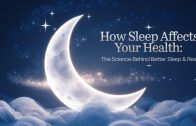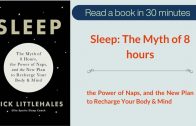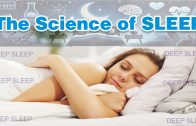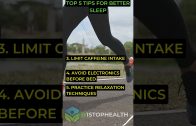How to sleep faster. 10 tips – Scientifically Based
Darkness and Sleep: Darkness is essential for sleep because it signals the brain to start synthesizing melatonin, the hormone responsible for sleep. Minimizing exposure to light, particularly blue light from screens before bedtime, can enhance this effect.
Cool Environment for Sleep: Lowering the ambient temperature to around 65°F (18°C) at night aligns with the body’s natural temperature drop, facilitating the production of melatonin and improving sleep quality.
Caffeine and Sleep: Avoiding caffeine at least 6 hours before bedtime is crucial as caffeine binds to adenosine receptors in the brain, blocking the signals that promote sleepiness and rest.
Diaphragmatic Breathing: Practicing diaphragmatic breathing before sleep activates the parasympathetic nervous system, which helps the body relax and eases the transition into sleep. This technique involves deep, belly-focused breathing.
Regular Sleep Schedule: Maintaining a consistent sleep schedule strengthens the body’s internal clock, enhances hormone regulation including melatonin production, and generally improves sleep onset and quality.
Appropriate Bed Use: Limiting the bed’s use to sleep and sex ensures that the brain associates this space with rest, reducing the likelihood of insomnia. If unable to sleep, it is advisable to leave the bed and return only when feeling sleepy.
Diet and Sleep: Consuming foods rich in tryptophan (which converts to serotonin and then to melatonin) and foods that contain melatonin directly, such as turkey, nuts, tomatoes, and tart cherries, can promote better sleep.


























